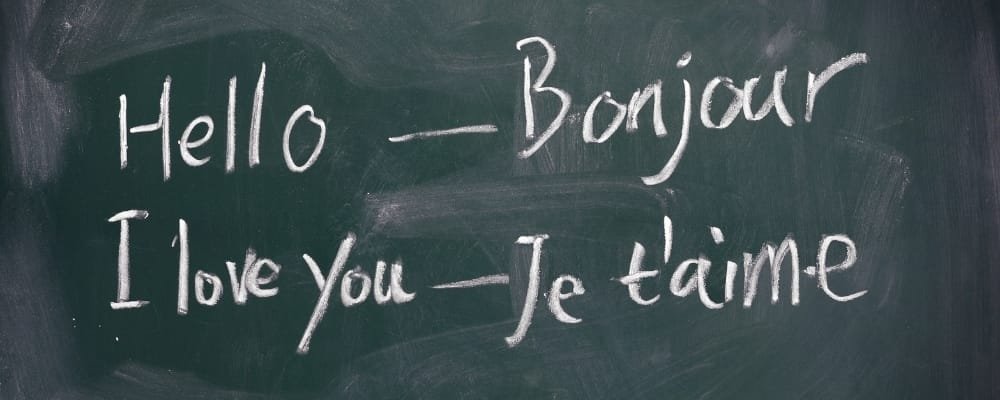
When planning your trip to France, it’s easy to think that a simple bonjour and merci will get you through. While these words are polite and essential, learning a few useful French travel phrases can transform your journey. Speaking French, even at a basic level, shows respect for the culture and opens doors to more authentic experiences with locals. Whether you’re exploring the romantic streets of Paris, tasting wine in Bordeaux, or strolling along the French Riviera, having the right words at your disposal makes a world of difference.
Many travelers rely on English when visiting France, but knowing some useful French travel phrases can set you apart. Locals appreciate the effort, and you’ll often receive warmer interactions, better service, and even insider tips that tourists miss. A study on Learning French as a Second Language highlights that English speakers often face challenges with pronunciation, grammar, and cultural nuances. By practicing travel phrases in advance, you reduce these barriers and create a smoother, more authentic experience when interacting with locals in France.
When traveling in France, memorizing useful French travel phrases for cafés, transportation, and emergencies ensures smoother communication. From greeting locals politely to ordering at a café, asking for directions, or handling an emergency, the right words help you connect with people and feel more confident. Below, you’ll find essential French expressions organized by situation to make your trip smoother, friendlier, and more enjoyable.
First impressions matter, and in France, greetings are a big part of daily life. Using the right words when meeting someone sets the tone for a respectful and friendly conversation. These greetings will help you start every interaction politely:
Bonjour – Hello / Good morning (use until evening)
Bonsoir – Good evening
Salut – Hi (informal, for friends)
Enchanté(e) – Nice to meet you
Tip: Always greet shopkeepers or staff with bonjour before asking a question—it’s considered polite and respectful, and skipping this step may be seen as rude.
Food is central to French culture, and mealtimes are about much more than just eating—they’re moments of connection and enjoyment. Using a few key phrases can make dining experiences smoother and show your appreciation for French hospitality:
Une table pour deux, s’il vous plaît – A table for two, please
La carte, s’il vous plaît – The menu, please
L’addition, s’il vous plaît – The bill, please
C’était délicieux – It was delicious
Showing appreciation by saying c’était délicieux often earns a smile and friendlier service. Remember, in France, dining is a cultural experience, so take your time and enjoy the atmosphere.
Whether you’re navigating the busy Paris Metro, taking a regional train, or asking for directions in a small town, these phrases will help you get around with ease:
Où est la gare ? – Where is the train station?
Un ticket pour Paris, s’il vous plaît – A ticket to Paris, please
Combien ça coûte ? – How much does it cost?
Est-ce loin ? – Is it far?
Transportation in France can feel overwhelming for newcomers, but being polite and using French phrases shows effort, which often results in more helpful responses from locals.
Shopping in France—whether in high-end boutiques or lively outdoor markets—is an experience on its own. Learning these phrases helps you connect with vendors and shopkeepers:
Combien ça coûte ? – How much does it cost?
Je regarde seulement – I’m just looking
Avez-vous une autre taille ? – Do you have another size?
C’est trop cher – It’s too expensive
Markets are vibrant and personal places where even a little effort with useful French travel phrases can go a long way. Vendors will often appreciate your effort to speak their language.
No one likes to imagine emergencies while traveling, but being prepared with a few key phrases can make a big difference. These expressions could prove vital if you find yourself in a difficult situation:
J’ai besoin d’aide – I need help
Appelez une ambulance, s’il vous plaît – Call an ambulance, please
J’ai perdu mon passeport – I lost my passport
Où est la pharmacie la plus proche ? – Where is the nearest pharmacy?
Having these phrases memorized or written down ensures you’re ready for unexpected situations, giving you peace of mind during your travels in France.

Learning useful French travel phrases is just one part of having an authentic experience in France. To truly connect with locals, it’s important to understand French culture and etiquette. Always greet people politely—saying bonjour when you enter a shop or address someone is expected. Use vous (the formal “you”) when speaking to strangers, waiters, or shopkeepers, as using tu (the informal “you”) can come across as rude if the relationship isn’t close. Politeness is highly valued, and a friendly smile combined with the right words goes a long way.
Another cultural tip: mealtimes in France are sacred. Avoid rushing through meals or asking for the bill too quickly, as dining is seen as a time to enjoy and socialize. Similarly, raising your voice in public is considered impolite, and maintaining a calm, respectful tone will help you blend in more smoothly. Even small gestures, such as thanking someone with merci beaucoup or excusing yourself with pardon, leave a positive impression.
Memorizing phrases is a great start, but true confidence comes from practice and structured learning. If your trip to France is coming up soon, why not prepare by taking a structured course? Our French language course for adults is designed to help travelers quickly build conversational skills, improve pronunciation, and gain cultural insights that go far beyond a phrasebook.
And if your adventures take you beyond France, you can also explore other adult language courses to prepare for destinations like Spain, Italy, or the Middle East. By investing in language learning now, you’re not just preparing for one trip—you’re equipping yourself with skills that will enrich all your future travels.
Going beyond bonjour and merci is more than just learning words—it’s about creating meaningful travel experiences. By practicing these useful French travel phrases, you’ll connect better with locals, show cultural appreciation, and enjoy a more authentic adventure. So, pack your bags, practice your phrases, and get ready to immerse yourself in the heart of French life. Bon voyage!
Ready to take the next step? Join our French language course for adults and gain the confidence to speak fluently during your travels.
Or, if your adventures take you beyond France, explore other languages for adults to prepare for your next destination.